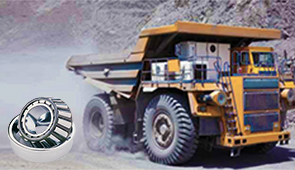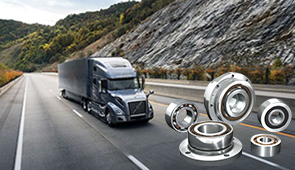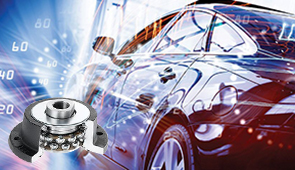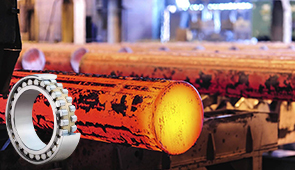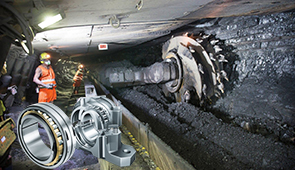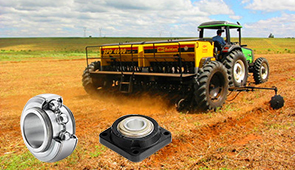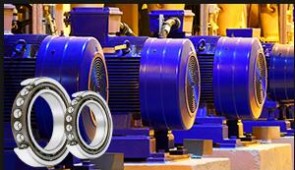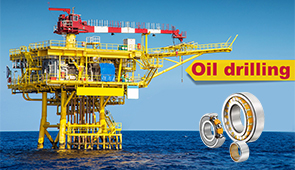What happens when bearings fail?
When a bearing fails, it often results in a catastrophic failure of the equipment it is part of.
Bearings are designed to operate under specific loads and speeds. If they are subjected to conditions outside of their design parameters, they will fail prematurely. The results can be devastating.
Bearings are used in almost every type of industrial equipment. They may be found in electric motors or fans, conveyor belts, pumps and compressors, or even small items such as computer disk drives.
When a bearing fails, it usually does so suddenly and without warning. Bearings that fail can cause serious damage to the equipment and injury to those nearby.
Machine noise becomes louder
The most common cause of a machine becoming louder is a bearing failure. The bearings are the parts of your machine that support it from below and allow the spindle or motor to spin smoothly. When they fail, they will make a loud grinding or squeaking noise as they try to spin but can’t because they are stuck or broken. You’ll notice this as an increase in sound coming from your machine as it operates.
When bearings fail, they lose their ability to support your machine’s weight. This means that all of the force created by the spinning spindle or motor has nothing to keep it in place and it begins to move around inside its housing. This causes more friction than normal which heats up the bearings even more and increases friction even further until they reach the point where they melt. This is why a failed bearing can cause so much damage to your equipment; it is being dragged around inside its housing while still spinning at full speed!
Wear and Tear
Wear and tear is the gradual wearing down of a machine due to use. It is usually a minor factor in the failure of a machine, but it can contribute significantly to its eventual breakdown.
The most common cause of wear and tear is friction between moving parts. This can be caused by:
– Imperfectly machined surfaces rubbing against each other
– Dirt getting into the mechanism and creating friction between moving parts
– Oil leaking out of the system and onto moving parts
– Wear from repeated use that eventually causes damage
Wear and tear often goes unnoticed until something catastrophic happens, such as when your car breaks down on the highway or your computer crashes during an important presentation. But if you’re paying attention to your machine’s performance, you can spot small signs that indicate trouble ahead.
Overheat
Overheating is one of the most common causes of bearing failure. Bearings can be damaged by overheating when the temperature exceeds their maximum operating temperature or when they are not cooled properly.
When bearings are used in a system that operates at high speeds, they can become hot from friction and vibration. This heat can cause material degradation and lead to early failure if there is no means for cooling them adequately.
If a bearing does not have adequate cooling, it will overheat and become damaged. The damage resulting from overheating may be permanent or temporary depending on how long the bearing was exposed to excessive heat levels.
When bearings fail due to overheating, it’s often because they were left exposed to high temperatures for an extended period of time without adequate cooling. This happens when your motor is working hard without proper ventilation or when there isn’t enough air flow around the motor or bearing assembly as you drive through traffic or go up hills. For example, if you’re driving uphill with your A/C on full blast at highway speeds, your engine must work harder than usual to produce power for both the engine and A/C compressor — all of which adds additional heat load onto your engine components including its bearings.
Vibration
When a bearing fails, it is usually because of an imbalance in the inner ring. This can happen when the inner ring is damaged or the lubricant has been contaminated.
A bearing will fail because of friction. Friction causes heat, which can lead to degradation of the lubricant and eventually failure of the bearing.
The first sign that your bearings are failing is vibration. Vibration in an engine means that something isn’t working as it should be working, whether it’s a part or a system. If you have an engine that vibrates at idle but runs fine under normal operating conditions, chances are good that there is something wrong with the camshaft or crankshaft timing chain system. There are other causes for engine vibrations as well, including worn out tires or bent suspension parts like shocks and struts.
Affect the normal operation of the machine
As bearings fail, they can cause significant damage to the machine. Depending on the type of bearing and its location in the machine, it may affect only one function of the machine or multiple functions. For example, if a bearing fails in an electric motor, it could cause only a slight drop in power output or lead to complete failure of the motor. In another situation, a failing bearing might cause one part of a machine to vibrate excessively or fail completely due to lack of lubrication.
In some cases, bearings that have failed completely may not be noticeable until after the damage has been done. If the bearings are worn down significantly but still provide enough lubrication and support for their function, they may not appear to be damaged even though they are failing mechanically. If you notice any unusual sounds coming from your equipment or feel vibrations while operating it, you should investigate further by checking your equipment thoroughly for signs of wear and tear before any damage occurs.
Bearing fatigue
Bearing fatigue is a phenomenon that can lead to premature failure of bearings. Bearing fatigue is a type of wear that occurs when the load on the bearing exceeds its endurance limit. When bearings are subjected to repeated loads, they experience cyclic deformation and subsequent plastic deformation. This cyclic deformation causes microscopic cracks in the bearing surface, which can eventually grow into large cracks that extend into the rolling elements and raceways. The number of cycles required for this process depends on the magnitude and frequency of applied loads, as well as on other factors such as temperature and lubrication conditions.
Bearings fail for a variety of reasons, but once they do you are left with a dangerous situation. It is critical to repair the bearing as soon as possible to help ensure your safety, the safety of others, and to help prevent further damage to property or equipment.
UCTH213-40J-300 with Setscrew(inch)
CNSORDERNO: Normal-duty(2)
TOGN: UCTH213-40J-300
SDI: B-R1/8
SD: 2 1/2
UCTH212-39J-300 with Setscrew(inch)
CNSORDERNO: Normal-duty(2)
TOGN: UCTH212-39J-300
SDI: B-R1/8
SD: 2 7/16
UCTH212-38J-300 with Setscrew(inch)
CNSORDERNO: Normal-duty(2)
TOGN: UCTH212-38J-300
SDI: B-R1/8
SD: 2 3/8
UCTH212-36J-300 with Setscrew(inch)
CNSORDERNO: Normal-duty(2)
TOGN: UCTH212-36J-300
SDI: B-R1/8
SD: 2 1/4
UCTH211-35J-300 with Setscrew(inch)
CNSORDERNO: Normal-duty(2)
TOGN: UCTH211-35J-300
SDI: B-R1/8
SD: 2 3/16
UCTH211-34J-300 with Setscrew(inch)
CNSORDERNO: Normal-duty(2)
TOGN: UCTH211-34J-300
SDI: B-R1/8
SD: 2 1/8









